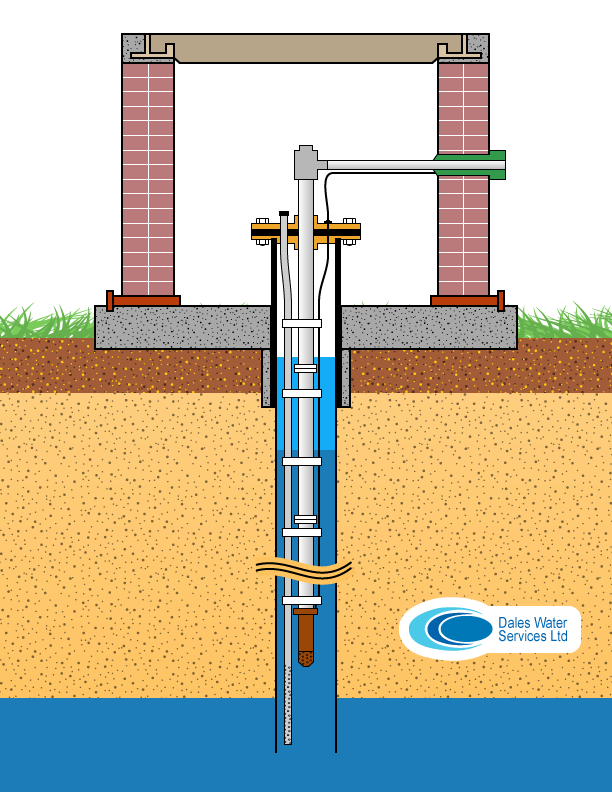How Does Borewell Work
A borewell is a crucial source of water in many parts of the world, particularly in areas where there is limited access to groundwater. Understanding how a borewell works can not only help you maintain the quality of your well water but also can save you from many future problems.
The Pain Points of How Does Borewell Work
When it comes to borewells, there are several pain points that you may encounter. Some of these can include:
- Low yield of water
- Muddy or dirty water
- Rotating problems of the borewell pump
- Borehole running dry
How Does Borewell Work?
A borewell is a hole that is drilled into the ground to extract water from the Earth's underground aquifers. The water can then be pumped to the surface for a variety of uses such as irrigation, drinking water, and other household purposes. Borewells are typically drilled using drilling rigs specifically designed for this purpose, and they can vary in depth depending on the location and geological features of the area.
Main Points Related to How Does Borewell Work
Some of the essential points to understand about how a borewell works include drilling the borehole, installing a casing, and then installing the pump. The drilling rig removes the soil by drilling until the water table is reached. After drilling is complete, a casing is installed to protect the borewell from collapsing, and then finally, the pump is installed at the bottom of the casing. These are the basic steps involved in drilling a borewell.
My Personal Experience
I live in a village in India where borewells are an essential source of water, and so my family decided to install a borewell on our property a few years ago. After conducting extensive research, we hired a professional drilling company to carry out the process. The drilling rig drilled to a depth of 700ft before reaching the water bed, where the drillers encountered an unexpected hard rock layer. This delayed the drilling process for a while, but eventually, they were successful in drilling the borehole, installing the casing, and finally the pump.
How Does Borewell Work: Pumping and Maintenance
After drilling and installing the borewell pump, there are a few necessary steps to maintain the quality and longevity of your well water:
- Regular cleaning and removing debris
- Checking the water level
- Undertaking water testing and monitoring different parameters such as TDS, pH, and other contaminants
- Regular check-up and servicing of the borewell pump.
What is the Difference Between a Borewell and a dug well?
The main difference between a dug well and a borewell is that a dug well is manually excavated in soil, sand, or clay, while a borewell is drilled using drilling rigs. Dug wells can be shallower than borewells, and their construction costs may be significantly lower as well.
The Importance of Water Quality in Borewells
The quality of the borewell water is of utmost importance because it can be contaminated by nitrates, bacteria, viruses, and other hazardous pollutants. Therefore, it is essential to regularly test and monitor the water quality of borewells.
Question and Answer
Q1. How deep should a borewell be?
A1. The depth of the borewell can vary depending on geological factors such as soil type, location, and water table. Ideally, the borewell should be deep enough to reach the water table, which can be anywhere from 50 to 600ft deep.
Q2. What is the expected life span of a borewell pump?
A2. The life span of a borewell pump can depend on multiple factors such as the type of pump, water quality, maintenance, and frequency of use. A well-maintained pump can typically function efficiently for 8-10 years|
Q3. Can borewell water be used for drinking purposes?
A3. Yes, borewell water can be used for drinking purposes, but you need to ensure that it is free from pollutants, bacteria, and other contamination. Regular water testing and treatment can help ensure water quality suitable for drinking.
Q4. What is the cost of drilling a borewell?
A4. The cost of drilling a borewell varies depending on several factors such as depth, location, and equipment used. In India, borewell drilling costs can range from INR 150 to INR 400 per foot. It is always advisable to do thorough research and get quotes from multiple contractors before choosing a borewell drilling company.
Conclusion
Borewells are a crucial source of water in many parts of the world and understanding how a borewell works can help you maintain the quality and longevity of your well water. Regular maintenance and testing can help ensure water quality, provide insight on water quantity, and prolong the life of borewell pumps.
Gallery
The Bore Process - Water Boring Process Mornington Peninsula | Borewell

Photo Credit by: bing.com / process bore borewell boring water diagram
How Does Borewell Drilling Work / बोरवेल का पानी का दबाव/ Borewell

Photo Credit by: bing.com /
Borehole Design Best Practice: What Goes Into A Fully Working Borehole

Photo Credit by: bing.com / borehole water schematic installation typical dales practice into example
How Does A Borewell Work? - Quora
Photo Credit by: bing.com / borewell does work solution
How Does A Borewell Work? - Quora
Photo Credit by: bing.com / borewell does work servive booking tap solution single